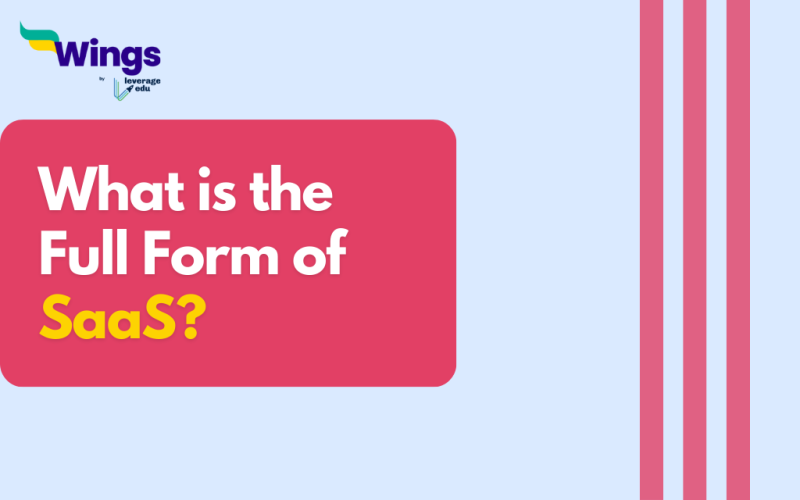The full form of SaaS is Software as a service. It is a cloud computing model in which software applications are provided to users over the internet on a subscription basis. Instead of installing and maintaining software on individual devices or local servers, SaaS allows users to access applications directly from the cloud. In this blog, we will learn about SaaS full form and its advantages.
Also Read – What is the Full Form of SAP Software?
History of SaaS
Table of Contents [show]
SaaS has its roots in the early days of computing when mainframe computers were used to provide software services to multiple users. However, it wasn’t until the late 1990s that SaaS truly gained popularity with the easy accessibility of the internet. Salesforce, a pioneering CRM company, is often credited with popularizing the term “Software as a Service.”
Before delving further into the full form of SaaS, let’s understand the broader context of cloud computing and its evolution:
- Infrastructure-as-a-Service (IaaS): IaaS involves the provision of computing resources, such as virtual machines, storage, and networks over the Internet. Service providers like Amazon Web Services (AWS) and Microsoft Azure offer infrastructure components to build and deploy applications.
- Platform-as-a-Service (PaaS): PaaS is a cloud computing model that provides a platform for developing, testing, and deploying applications. It offers a complete development environment, including infrastructure and runtime, to simplify the application development process.
- Software-as-a-Service (SaaS): SaaS is the layer of cloud computing that offers ready-to-use software applications over the internet. It eliminates the need for traditional software installations, making it accessible to users from any device, anywhere.
Also Read – What is the Full Form of ERP?
Benefits of SaaS
There are several notable advantages of utilizing SaaS for both businesses and individuals:
- Cost-effective: By adopting SaaS, organizations can avoid upfront costs and can opt for affordable subscription-based pricing models, reducing their IT expenses.
- Ease of use: SaaS applications are designed to be user-friendly, with intuitive interfaces that require minimal training.
- Scalability and flexibility: Users can quickly and effortlessly scale up or down their subscription plans based on their evolving needs.
- Automatic updates and maintenance: One of the significant advantages of SaaS is that software updates and maintenance tasks are handled by the service provider.
- Accessibility: SaaS applications can be accessed from any device with an internet connection, enabling users to work remotely and collaborate seamlessly.
Also Read – What is the Full Form of B2B?
Features of SaaS on Businesses
Here are a few ways SaaS has impacted businesses:
- Improved collaboration: SaaS applications often come with built-in collaboration tools, allowing teams to work together on projects in real-time. This helps in efficient communication, enhances productivity, and promotes seamless collaboration across geographically dispersed teams.
- Cost savings: By shifting from traditional software models to SaaS, businesses can significantly reduce IT costs. They no longer need to invest in expensive hardware, software licenses, or dedicated IT staff. Instead, they can redirect their resources toward core business activities.
- Enhanced security: SaaS providers employ advanced security measures and ensure regular data backups to protect sensitive information.
Popular Full Forms
We hope this blog has helped you understand the SaaS full form and everything related to it. If you want to know more, find the general full form list on our blog. In the world of short forms, you can rely on the Leverage edu page to know about more full forms like this! Connect with us study abroad experts to achieve your international dream today!
 One app for all your study abroad needs
One app for all your study abroad needs















 45,000+ students trusted us with their dreams. Take the first step today!
45,000+ students trusted us with their dreams. Take the first step today!
